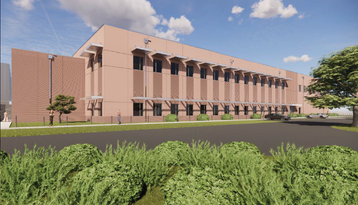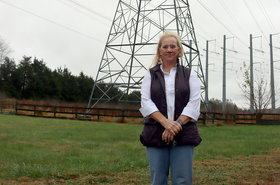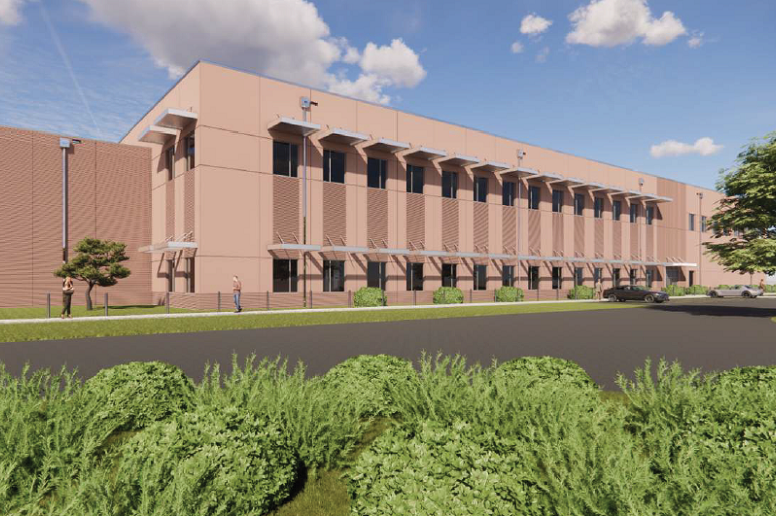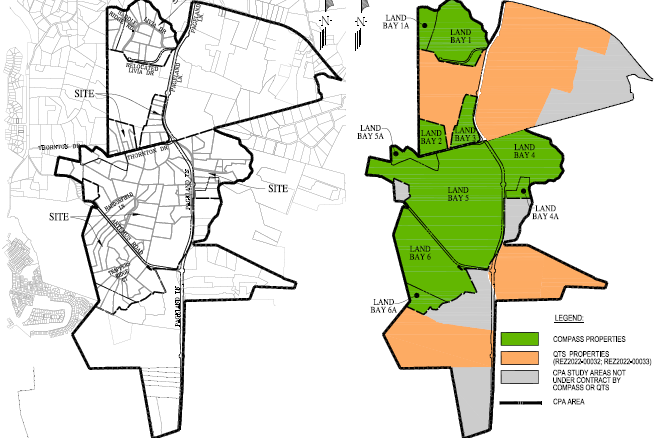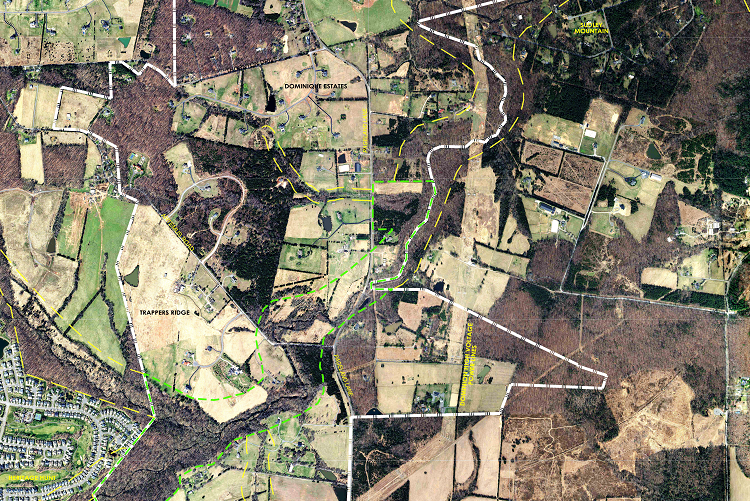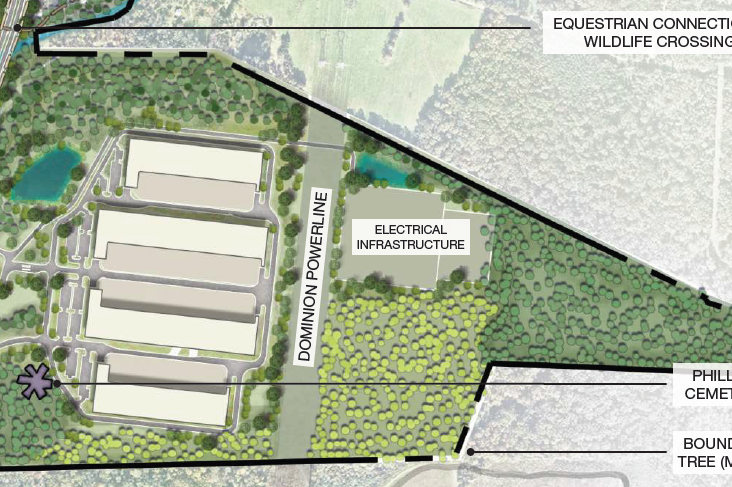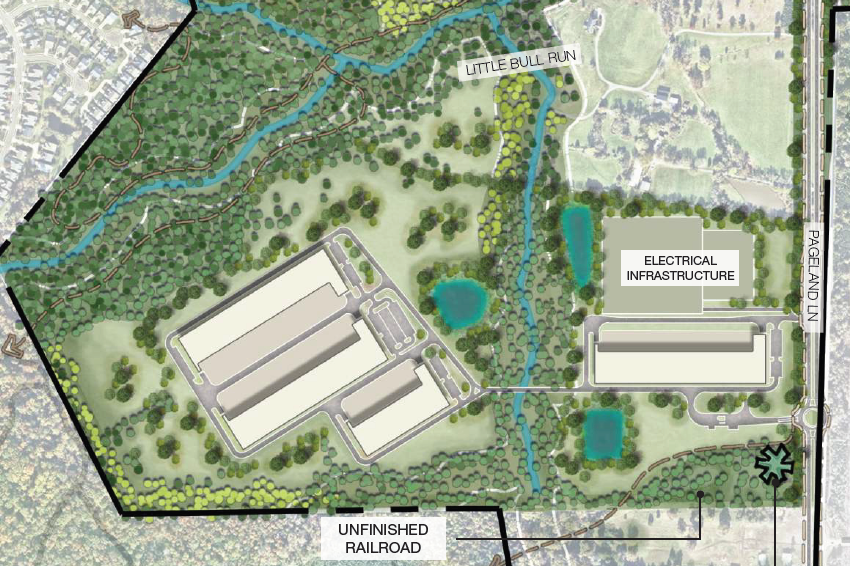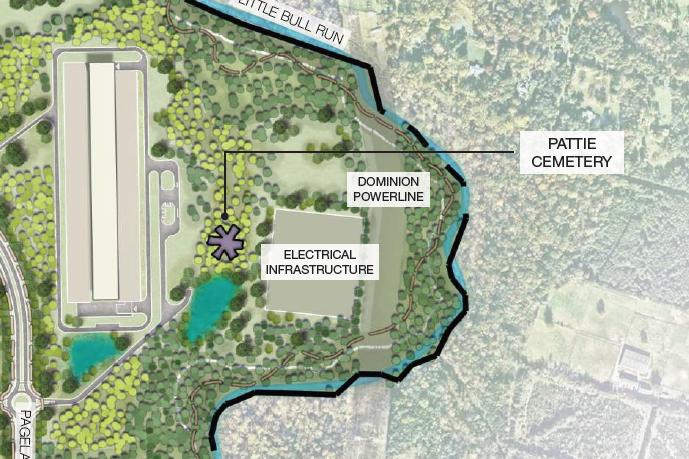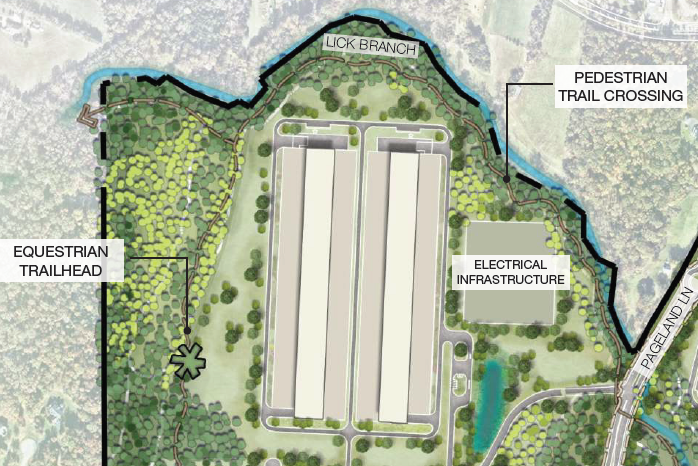Compass Data Centers has refiled its plans for a massive data center campus in Virginia’s Prince William County. The company is one of two alongside QTS looking to develop more than 20 million sq ft of data centers as part of the PW Digital Gateway project.
Compass originally filed a rezoning application in June 2022, but this month has refiled with an updated application providing more detail. The company aims to develop up to 11.55 million sq ft of data center space on the land.
The updated application expands the rezoning request from 834 acres to 884 acres of A-1, Agricultural and SR-5, semi-rural residential to allow for data center development, and ups the expected data center square footage by around one million sq ft.
DCD understands the updates are mostly related to the requirements put forward in the latest Comprehensive Plan Amendment the county passed in November 2022. The application includes a number of proffers Compass is offering to benefit the area in return for the rezoning authorization.
Compass proposes to develop data centers and supporting office and conference facilities, but also eating establishments and fast-food restaurants, health clubs and recreational facilities, child care facilities, financial institutions, and other supportive uses and services.
The exact number of data centers the company is planning at this point isn’t clear, but would be built out over 10-15 years. The buildings will require individual permits. It is unclear how many substations would be built.
The gateway land is broken up to 10 land bays, four of which would be open space. Compass and QTS intend to build a trail network through several of the land bays and adjacent stream corridors, as well as a 300 ft-wide wildlife corridor.
Most of the buildings will up to 100 ft tall, but after a view-shed analysis conducted from the neighboring Manassas Battlefield Park, certain buildings will be restricted to heights of 60 ft in certain land bays.
The company will screen any equipment visible from adjacent cultural, residential, and agricultural designated areas and public rights-of-way, and aims to mitigate the visual impact of buildings with aesthetic designs.
In the application, Compass noted an archaeological survey found a site that once may have contained an African American school, which the company said it will protect. Three cemeteries on the land bays will also be preserved and protected. Compass is also suggesting the school site could also become a cultural resource park.
On water use, the company said it will not utilize groundwater, surface water withdrawals, or surface water discharges for cooling purposes associated with data center uses. It aims to provide the area with full water infrastructure and use ‘extensive stormwater management techniques’ that could lead to the removal of some 100 septic tanks and fields in the area.
In conjunction with QTS, Pageland Lane will be expanded from two lanes to four, with some roads straightened and six roundabouts installed.
Locals have for years fought against a Bi-County Parkway running through the area, and opposition groups had previously claimed the gateway project could lead to a ‘parkway by stealth.’ However, DCD understands the introduction of roundabouts will help keep speeds down to around 35-40mph.
Reports of a PWC Digital Gateway surfaced last year, originally as an 800-acre development later tied to QTS. However, more landowners joined and the proposal expanded to include some 2,133 acres of the county's "rural crescent" for data centers.
QTS is known to be involved in the project, looking to rezone and develop on around 800 acres each. A letter from NOVEC in a previous staff report suggests the project could total more than 1,000MW.
The gateway project has been controversial and unpopular with a number of local residents. Opposition groups have been critical of a lack of engagement from developers, and even held unacknowledged protests outside QTS’ existing data center in Manassas.
DCD understands that now the CPA has passed and details are confirmed, Compass is now seeking to engage with a number of local groups to discuss its development plans with the community and is hoping to have meetings with residents in the coming weeks.
The previous application noted that the area is suitable for data centers because “it sits either under or adjacent to existing high-voltage electric transmission lines, and fiber optic corridors, that are critical to data center operations.”
The updated application adds that it is consistent with the new CPA and would “assist the County’s efforts to achieve and sustain a diversified commercial tax base.”
Within Virginia, Compass currently operates one campus in Leesburg, Loudoun County; originally granted permission for a 75MW, 750,000 sq ft (~69,700 sqm) site spanning nine buildings. The company began construction on the first in 2019, and recently downsized its master plan to 625,000 sq ft (68,000 sqm) after removing plans for two buildings and gaining the option to group three of the buildings into one large facility.

